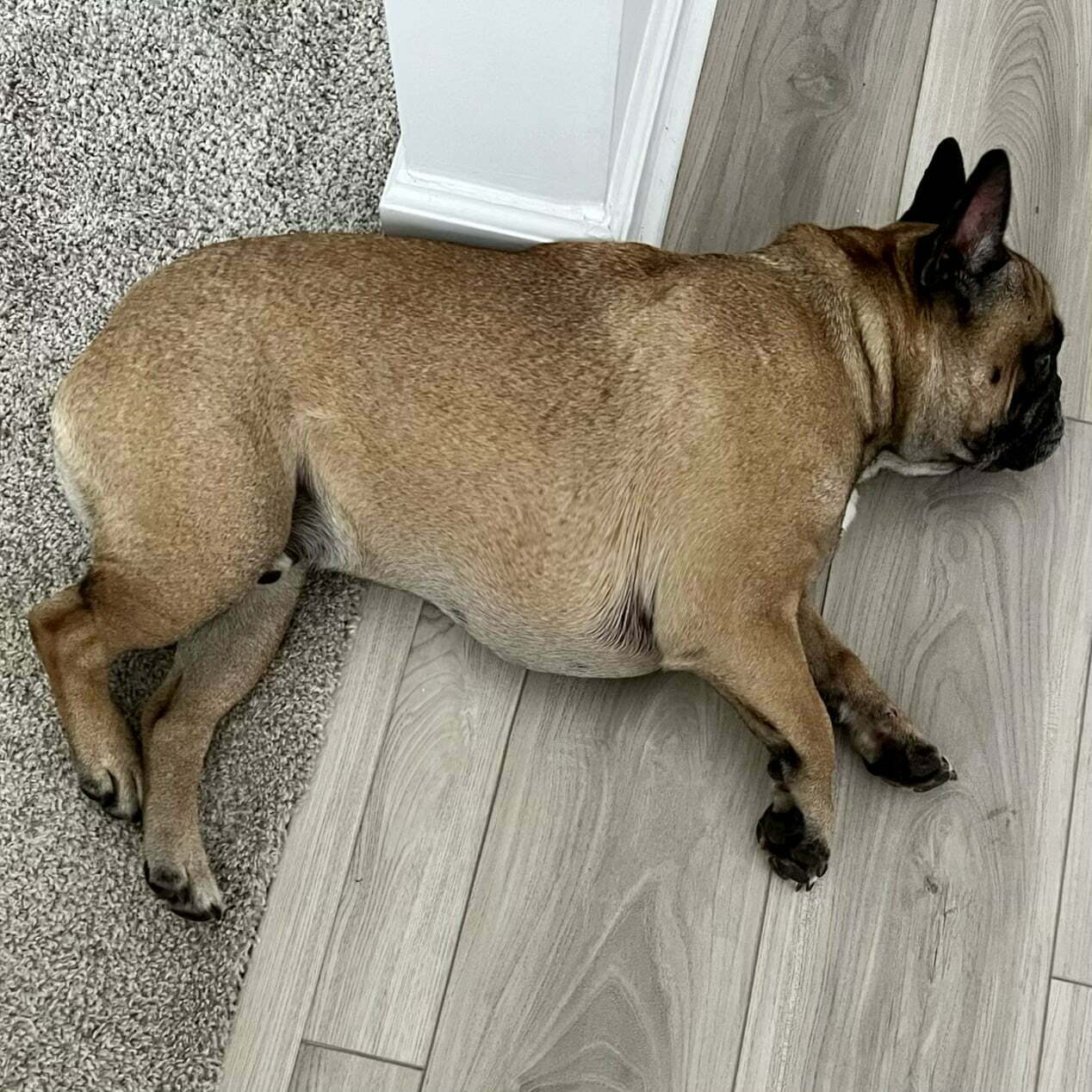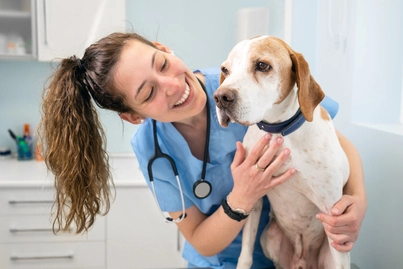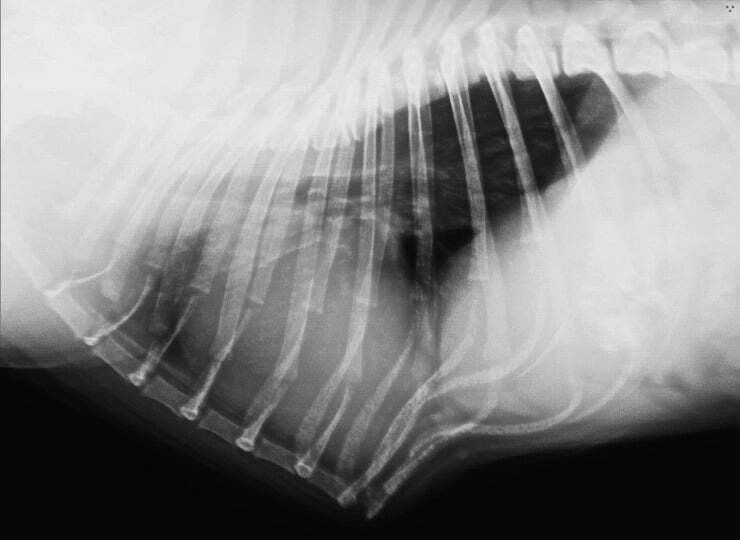Did you know that French Bulldogs, along with some other breeds, are prone to a chest bone deformity called pigeon chest? This condition, while not always life-threatening, can impact the overall health and well-being of affected dogs. Understanding pigeon chest French Bulldog, its symptoms, causes, and treatment options is essential for French Bulldog owners to ensure their beloved pets live happy, healthy lives. Let’s dive into the world of pigeon chest in French Bulldogs and explore the available options for managing this condition.
By the end of this blog post, you will have gained valuable knowledge about pigeon chest French Bulldog, how to recognize its symptoms, and the steps you can take to provide the best care for a French Bulldog with this condition. So, let’s embark on this educational journey together!
Key Takeaways
- Pigeon chest is a congenital deformity commonly found in French Bulldogs, which can lead to respiratory distress and spine curvature.
- Diagnosis of the condition is essential for determining an appropriate course of treatment, ranging from physical therapy to surgical intervention.
- Prevention involves selecting reputable breeders who health test their breeding dogs and avoid those with known chest deformities.
Understanding Pigeon Chest in French Bulldogs
Pigeon chest, also known as pectus carinatum, is a chest and rib disfigurement in which the sternum protrudes outwards, resembling the chest of a pigeon.
This congenital deformity is commonly found in French Bulldogs and other brachycephalic dogs, such as Pugs and Shih Tzus. In severe cases, chest bone deformities can result in serious health complications, including abnormalities of the heart and lungs, respiratory distress, and impaired ventilation.
Although the exact cause of pigeon chest is not entirely understood, it is believed to be linked to genetic factors and is hereditary in certain breeds. The severity of the condition can vary, with some dogs experiencing mild symptoms while others face more significant challenges.
Regardless of the severity, timely diagnosis and appropriate treatment are crucial for managing this condition and ensuring the overall well-being of pigeon-chested dogs.
Symptoms of Pigeon Chest in French Bulldogs

The most noticeable symptom of a pigeon chest is the visible protrusion of the sternum or the bone jutting out from the chest. However, the severity of the condition may not be apparent until the dog starts exhibiting other symptoms associated with the deformity.
One of the most common symptoms reported by pet owners is respiratory distress or difficulty breathing.
Aside from breathing difficulties, French Bulldogs with pigeon chest may also exhibit signs of spine curvature and scoliosis. Both of these symptoms may lead to further complications and discomfort for the affected dogs.
Let’s delve deeper into these two primary symptoms of pigeon chest in French Bulldogs.
Difficulty Breathing
Breathing difficulties in French Bulldogs with pigeon chest can manifest in various ways, including exercise intolerance, noisy breathing, snoring, wheezing, snorting, gagging, coughing, and shortness of breath.
These issues arise due to the deformity in the chest, which can hinder the proper functioning of the lungs and heart.
It is crucial for pet owners to closely monitor their French Bulldog’s breathing and seek veterinary advice if any issues arise.
Connect with a verified veterinarian in minutes. No waiting for appointments or office hours. No high fees. Your pet's health made convenient and worry-free.
Early detection and intervention can help minimize complications and improve the overall quality of life for dogs with pigeon chest.
Spine Curvature and Scoliosis
Spine curvature in French Bulldogs with pigeon chest may be caused by thoracic congenital vertebral body malformations, such as hemivertebra with kyphosis and scoliosis.
Hemivertebrae form when the right and left halves of the developing vertebral body do not fuse, resulting in a body resembling a butterfly. Additionally, dwarfism may cause the vertebrae to become abnormally shaped, leading to hemivertebrae.
Scoliosis, a symptom associated with spine curvature in French Bulldogs with pigeon chest, can further exacerbate the condition and lead to discomfort and pain.
Seeking professional advice from a veterinarian is crucial for managing spine curvature and scoliosis in affected dogs.
Causes of Chest Bone Deformities in Dogs

As mentioned earlier, the primary cause of chest bone deformities in dogs is abnormal bone growth during development, which is believed to be due to genetic factors that are hereditary in certain breeds.
The two main types of chest bone deformities in dogs are pectus carinatum (pigeon chest) and pectus excavatum (sunken chest).
Both conditions are present at birth, but the severity of the deformity may not be evident until the puppy starts exhibiting symptoms such as difficulty breathing and failure to thrive.
The prognosis for chest bone deformities in dogs varies depending on the severity of the condition.
Pectus excavatum generally has a favorable prognosis in young animals, with even severe cases responding well to surgical correction. Similarly, dogs with pectus carinatum often display mild or no symptoms, leading to an encouraging prognosis.
Diagnosing Pigeon Chest in French Bulldogs
Diagnosing pigeon chest in French Bulldogs typically begins with a physical examination by a veterinarian. Radiographs (X-rays) may be utilized to evaluate the severity of the deformity and to rule out other potential sources of chest deformity. An echocardiogram, which assesses the heart and lungs for any abnormalities related to the pigeon chest deformity, may also be performed.
Early diagnosis is crucial for determining the appropriate course of treatment and managing the condition effectively. If you suspect your French Bulldog may have a pigeon chest, it is essential to consult with a veterinarian as soon as possible to ensure the best care for your beloved pet.
Treatment Options for Pigeon Chest in French Bulldogs
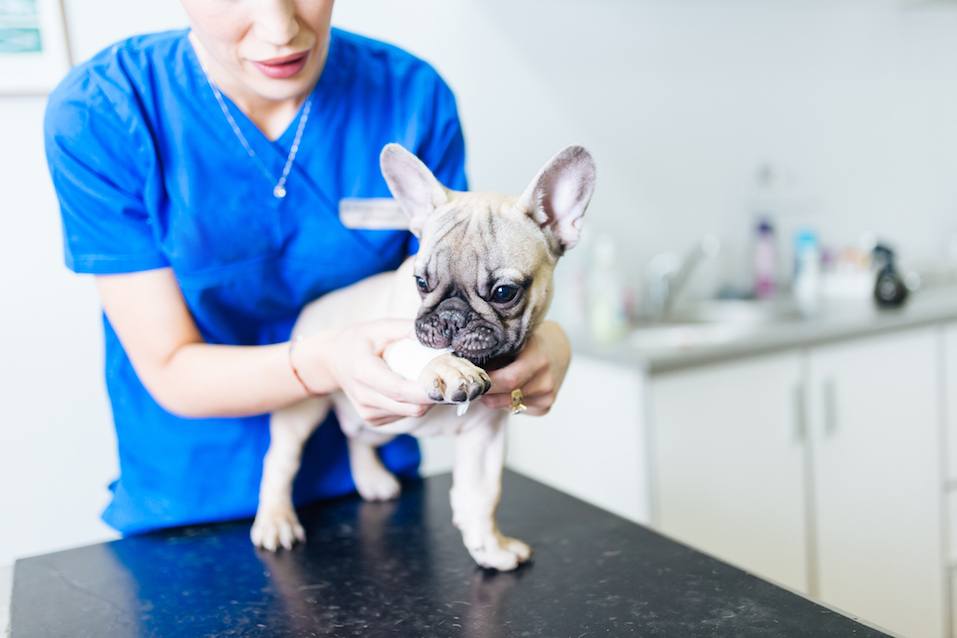
The treatment options for pigeon chest in French Bulldogs depend on the severity of the deformity and the presence of any associated symptoms. In some cases, physical therapy and manual compression may be sufficient to manage the condition. However, in more severe cases, surgical intervention may be necessary to correct the deformity and alleviate symptoms such as difficulty breathing.
It is important to discuss the available treatment options with a veterinarian, who will take into account various factors, including the severity of the abnormality and the manifestation of symptoms, before recommending the most suitable course of action.
Physical Therapy
Physical therapy is a recommended treatment option for French Bulldogs with pigeon chest, which may be employed in combination with other treatments or as a single modality. The primary goal of physical therapy is to alleviate pain and discomfort associated with the deformity while enhancing the dog’s range of motion and suppleness. Physical therapy can also help strengthen the muscles and ligaments surrounding the chest, potentially reducing the severity of the abnormality.
However, physical therapy can be an uncomfortable experience for the dog and may lead to further pain and discomfort if not executed properly. It is imperative to ensure that the physical therapist is adequately experienced and knowledgeable in treating dogs with pigeon chest and that the exercises are conducted correctly.
External Splints and Compression
External splinting and compression are conservative treatment options for pigeon chest in French Bulldogs, particularly in younger dogs with more flexible thoraxes. Corrective splinting may also be utilized if the malformation is not severe enough to warrant surgery. These treatments involve the use of braces or casts to help rectify the deformity.
It is crucial to work closely with a veterinarian to ensure that the splinting or compression method used is appropriate for the dog’s specific condition and that the treatment is applied correctly to avoid causing further discomfort or complications.
Surgical Intervention
In severe cases of pigeon chest deformity in French Bulldogs, surgical intervention may be necessary to correct the affected bone and alleviate symptoms. The surgical procedure involves removing the pertinent bone and substituting it with a fiberglass cast. This treatment option is typically reserved for dogs experiencing significant respiratory distress or other complications as a result of the deformity.
As with any surgical procedure, there are potential risks, such as infection, pain, and scarring. However, the potential benefits include improved breathing and a more normal appearance. It is important to discuss the risks and benefits of surgery with a veterinarian to determine if this is the best course of action for your French Bulldog.
Preventing Pigeon Chest in French Bulldogs

Preventing pigeon chest in French Bulldogs can be challenging, as the condition is primarily a result of genetic factors. However, there are certain steps that can be taken to minimize the risk of developing the condition, such as avoiding inbreeding and consulting a veterinarian if the deformity is present at birth.
If you are considering getting a French Bulldog puppy, it is important to choose a reputable breeder who health tests their breeding dogs and refrains from breeding dogs with known chest deformities. This can help reduce the likelihood of acquiring a puppy with pigeon chest and ensure the overall health of future generations of French Bulldogs.
Living with a Pigeon Chest French Bulldog
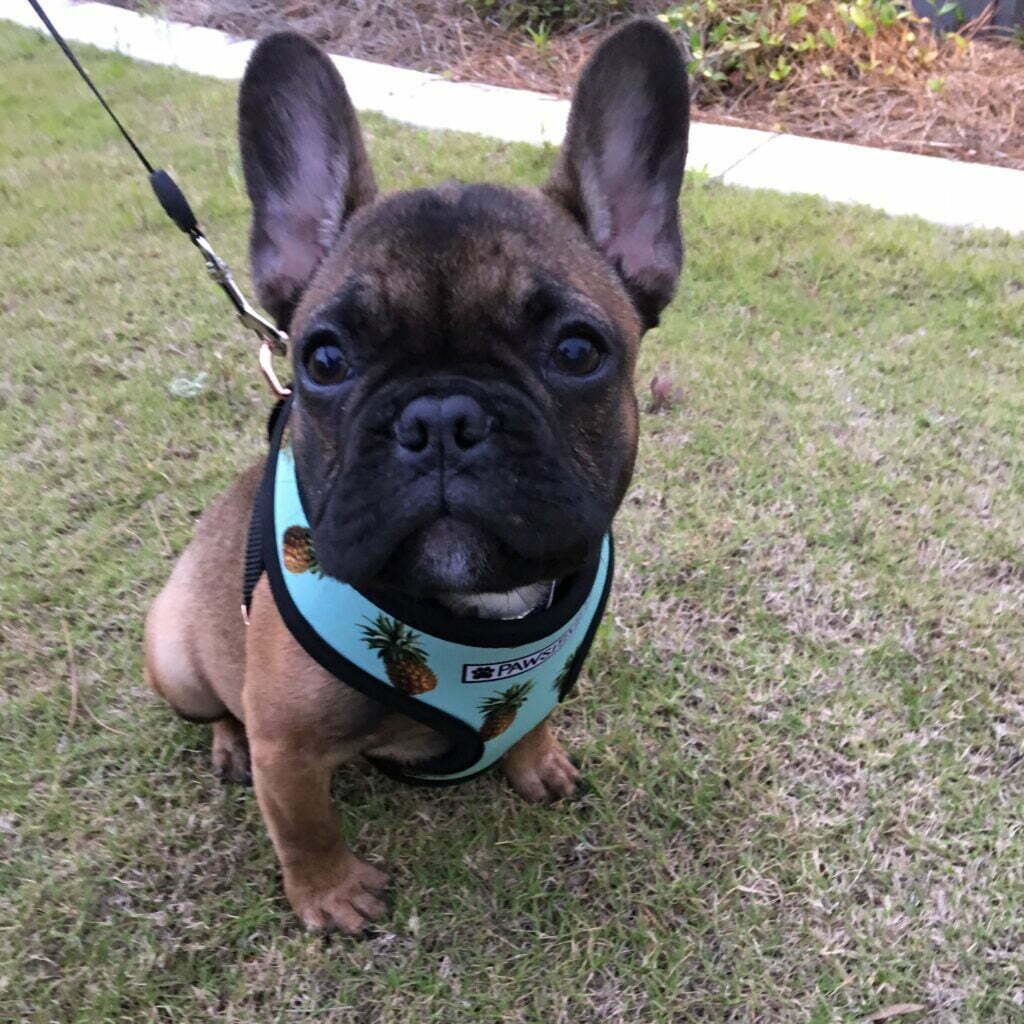
Living with a pigeon chest French Bulldog can be a rewarding experience, as these dogs are known for their affectionate nature and charming personalities. However, it is essential to consistently monitor the health of your dog and provide the necessary care and support to ensure their well-being. This may involve adjusting their exercise routine, beginning with 15-minute walks and gradually increasing the duration as your dog’s condition improves.
It is also important to notify the breeder if you discover that your French Bulldog has a pigeon chest, as this information can help them make informed decisions about their breeding program. In addition, be sure to consult with a veterinarian for professional diagnosis and advice on how to manage your dog’s condition and maintain their overall health and happiness.
Summary
In conclusion, pigeon chest is a chest bone deformity that affects French Bulldogs and other brachycephalic dog breeds. Understanding the symptoms, causes, and treatment options for this condition is essential for providing the best care for your beloved pet. Early diagnosis, appropriate treatment, and ongoing monitoring of your dog’s health can help ensure they lead a comfortable and happy life despite their chest deformity.
As a responsible French Bulldog owner, educating yourself about the pigeon chest and working closely with your veterinarian will enable you to provide the best possible care for your pet. Remember, a well-informed pet owner is a pet’s best advocate. Together, you and your pigeon chest French Bulldog can overcome the challenges of this condition and enjoy a loving, fulfilling life together.
References
Komsta, R., Osiński, Z., Dębiak, P., Twardowski, P., & Lisiak, B. (2018). Prevalence of pectus excavatum (PE), pectus carinatum (PC), tracheal hypoplasia, thoracic spine deformities and lateral heart displacement in thoracic radiographs of screw-tailed brachycephalic dogs. PLoS ONE, 14(10). https://doi.org/10.1371/journal.pone.0223642
